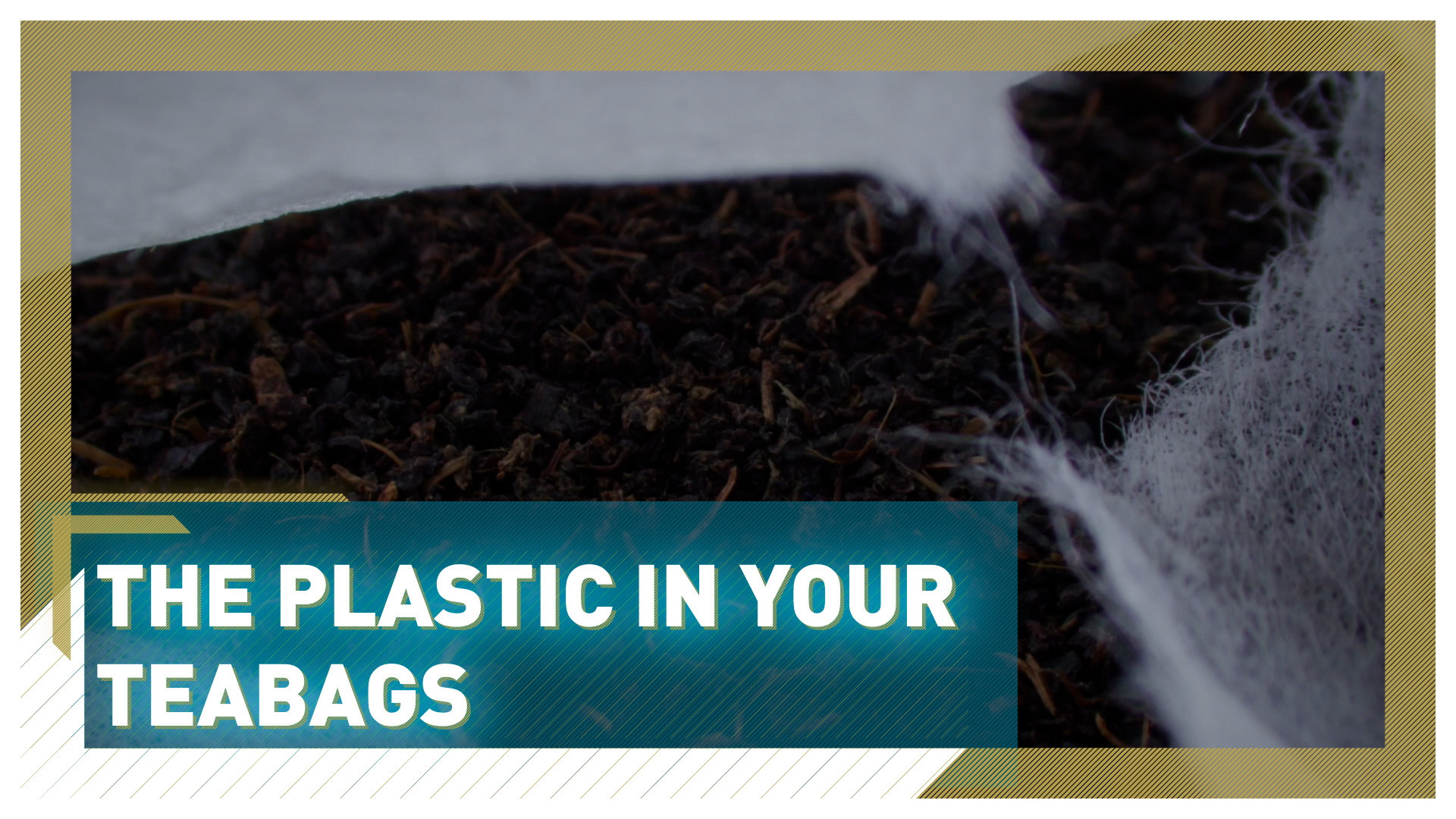03:33

Putting the kettle on to make tea is a classic way to unwind, whether it be at home, on a work break, or out for a leisure trip.
British tea drinkers, for instance, consume more than 160 million cups a day in total – that's several cups a day each on average. The quickest and most convenient method to brew up is using a tea bag, either in a teapot or a cup.
Most of us would not stop to question how this average tea bag is put together – or how sustainably. Under pressure to mass-produce cheaply on production lines, most big brands seal tea bags with some form of plastic.
"In normal tea bags, they put a thin layer of plastic fibers over the top of the paper before they put the tea on it," explains Andrew Mayes, a senior lecturer in chemistry at the University of East Anglia. "Then another thin layer of plastic fiber and then another layer of paper, so they can very rapidly seal it around the edges by heating it."

CLICK: CAN A CENTURIES-OLD SYSTEM SAVE AUSTRIA'S ALPINE FARMERS?
The environmental problem these tea bags represent is that those plastic fibers will not biodegrade, instead ending up in the ecosystem as microplastics.
This can damage various organisms, as these minute plastic particles work their way up through the food chain.
"There's only a tiny bit [of plastic] in each teabag, maybe 50 milligrams," says Mayes. "But when you multiply it up, it equates to something like 5 tonnes a day.
"It's already in the form of microfibers, which can quite easily physically break down into really small microplastics. They're exactly the kind of thing that can be ingested by organisms."
READ MORE: Tea bags release billions of microplastics into your cup, study shows
Scientists say the ultimate eco-friendly solution is to avoid tea bags and drink loose leaf tea, but that takes a bit more time and preparation.
Eco on a budget
The good news for conscious consumers on a budget is that tea brands have recognized the problem of the plastic present in tea bags and are working on changes.
Top-selling Yorkshire Tea says it is slowly switching to a plant-based seal and has managed to update around a fifth of its products, although the deadline to complete the changeover by the end of 2020 has been pushed back due to the coronavirus pandemic.
PG Tips has created a new biodegradable tea bag, which, according to instructions on its website, can be thrown away into a home composter.

Your tea bag may help you relax, but does it damage our ecosystems? /Lewis Mulatero/Getty Creative
Your tea bag may help you relax, but does it damage our ecosystems? /Lewis Mulatero/Getty Creative
But environmental groups argue that while these new forms of plastics are undoubtedly an improvement, they can still take a very long time to decompose.
City to Sea, which campaigns to reduce plastic waste, is calling for more public information regarding the disposal of plant-based plastics. "I think there's a big disconnect here about technically what's possible and what could be happening and the reality of how most consumers are engaging with this," says City to Sea's campaigns manager Steve Hynd.
"I think what we need from big brands is greater clarity. Is it best to be put in the bin, is it best put into their councils recycling or food composting scheme, or can they put into their own compost in their back garden?
"Until the big companies are really clear about that, it's not going to solve this plastic pollution problem."

Researchers found that each tea bag releases around 11.6 billion microplastics and a further 3.1 billion even smaller nanoplastics. /beyond foto/Getty Creative
Researchers found that each tea bag releases around 11.6 billion microplastics and a further 3.1 billion even smaller nanoplastics. /beyond foto/Getty Creative
As public awareness of plastic in tea bags grows, sustainable tea products are becoming increasingly popular. Some ethical brands, such as Pukka, use a stitched rather than glued tea bag, which eliminates the plastic content entirely.
The high-end eco-brand Teapigs has developed its own unique plant-based plastic pouch for its tea bags, which can biodegrade in an industrial composter. The overall product is packaged in sustainably-derived cardboard boxes and in biodegradable plastic, which the company says should compost within eight to 12 weeks.
Teapigs co-founder Louise Cheadle says her company is committed to finding better eco-friendly solutions, but is urging the UK government to improve waste management options for compostable products.
"We have always tried to move to the next available packaging, which is best for the environment," she says.
"We've invested 50,000 pounds [$65,000] every year in improving our packaging, to make sure it's plastic-free. And that's an ongoing process of working with scientists to make sure we're at the forefront of looking for the next opportunity."
But many eco-friendly tea brands have a more exclusive price tag, making them less appealing to a wider market. A solution to eliminate hidden plastic from mass-produced low-cost tea bags is yet to come.